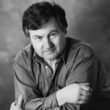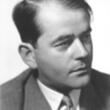Blitzed: drugs in the Third Reich
Description
More Details
Ohler, Norman Author
Rudnicki, Stefan Narrator
Whiteside, Shaun translator, Translator
9781328664099
9781504799249
Table of Contents
From the Book - First U.S. edition.
Excerpt
Similar Titles From NoveList
Similar Authors From NoveList
Published Reviews
Library Journal Review
There is no shortage of books explaining the rise and reign of the Third Reich in mid-20th-century Germany. Economic devastation, revitalized xenophobia, and cult-like nationalism are most often cited as the primary contributing factors. Do these tell the whole story? Journalist Ohler suggests an additional element that aided German troops, government officials, and even Adolf Hitler himself-drugs. The author tells the story of Nazi-era drug use from both the perspective of members of the military and Hitler himself. Government sanctioned and distributed medication, primarily a German-developed drug called Pervitin (a form of methamphetamine), sustained the German war machine. Hitler's personal physician during the war years, Theodor Morell, is given extensive coverage. Although Morell is not unknown to Nazi history, descriptions of his medicating the Führer here are new and fascinating. Stories of drug use among German soldiers are culled from old letters, anecdotes, and interviews with veterans. This book is well translated from the original German. VERDICT Ohler paints a picture of the Nazi era that will enthrall World War II history buffs and all nonfiction readers alike.-Brett Rohlwing, Milwaukee P.L. © Copyright 2017. Library Journals LLC, a wholly owned subsidiary of Media Source, Inc. No redistribution permitted.
Kirkus Book Review
An intense chronicle of "systematic drug abuse" in Nazi Germany.Although the use of opiates and other drugs was pervasive in the Weimar Republic of the 1920s, the Nazis ostensibly opposed them, offering "ideological salvation" instead, writes German journalist Ohler in this nonfiction debut. In fact, the Third Reich depended heavily on drugs, notably cocaine, heroin, morphine, and methamphetamines, to sustain the fearless blitzkrieg attacks of its advancing armies and to keep Adolf Hitler in a euphoric, delusional state. Drawing on archival research in Germany and the United States, the author crafts a vivid, highly readable account of drug use run amok. He describes systematized drug tests conducted by Dr. Otto F. Ranke, a defense physiologist, who waged war on exhaustion with Pervitin, an early version of crystal meth. The fierce Nazi invasion of France, lasting three days and nights without sleep, was made possible by use of Pervitin: "It kept you awake, mercilessly," recalls a former Nazi medical officer. Relying heavily on the diaries of Dr. Theodor Morell, Hitler's personal physician (Hermann Gring called him the "Reich Injection Master"), Ohler writes at length about Hitler's drug use throughout the war, which began with a "power injection" of glucose and vitamins before big speeches, then escalated to cocktails of hormones, steroids, and vitamins, and finally, in his last year, to the use of both cocaine and Eukodal, a designer opioid that even infamous heroin addict William Burroughs called "some truly awful shit." With Morell treating him daily, Hitler spent his last weeks in a fog of artificial euphoria and "stable in his delusion," and his veins had a junkie's track marks. Because of Allied bombing of manufacturing plants, supplies of the drugs favored by Hitler dried up, his health deteriorated, and he entered withdrawal. He would fire his doctor before committing suicide in 1945. Written with dramatic flair (Ohler has published several novels in Germany), this book adds significantly to our understanding of the Third Reich. Copyright Kirkus Reviews, used with permission.
Library Journal Reviews
Not sensationalism but a serious study researched over five years, this work argues that during World War II German pharmaceuticals fed the populace cocaine, opiates, and especially methamphetamines, which kept soldiers moving briskly during blitzkrieg campaigns. With a 50,000-copy first printing; rights to 14 countries.. Copyright 2016 Library Journal.
Library Journal Reviews
There is no shortage of books explaining the rise and reign of the Third Reich in mid-20th-century Germany. Economic devastation, revitalized xenophobia, and cult-like nationalism are most often cited as the primary contributing factors. Do these tell the whole story? Journalist Ohler suggests an additional element that aided German troops, government officials, and even Adolf Hitler himself—drugs. The author tells the story of Nazi-era drug use from both the perspective of members of the military and Hitler himself. Government sanctioned and distributed medication, primarily a German-developed drug called Pervitin (a form of methamphetamine), sustained the German war machine. Hitler's personal physician during the war years, Theodor Morell, is given extensive coverage. Although Morell is not unknown to Nazi history, descriptions of his medicating the Führer here are new and fascinating. Stories of drug use among German soldiers are culled from old letters, anecdotes, and interviews with veterans. This book is well translated from the original German. VERDICT Ohler paints a picture of the Nazi era that will enthrall World War II history buffs and all nonfiction readers alike.—Brett Rohlwing, Milwaukee P.L.
Copyright 2017 Library Journal.


































